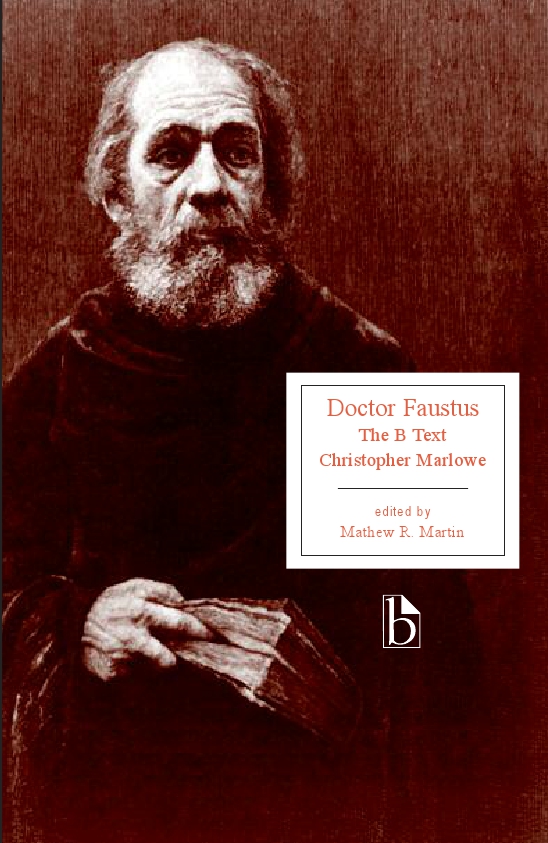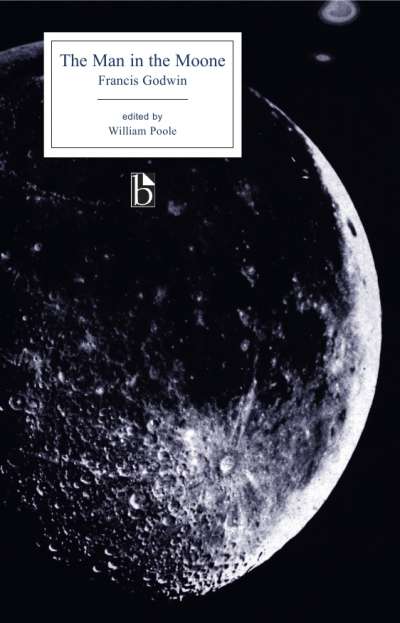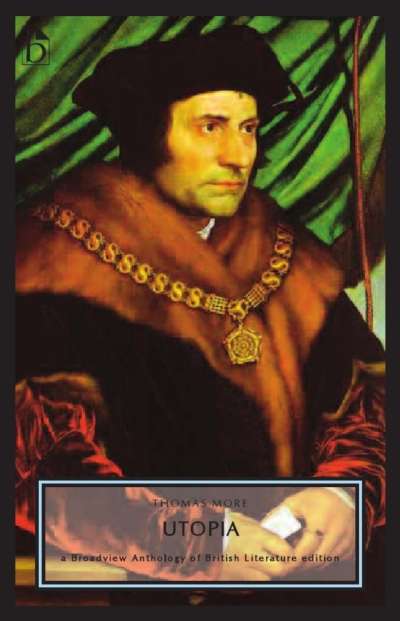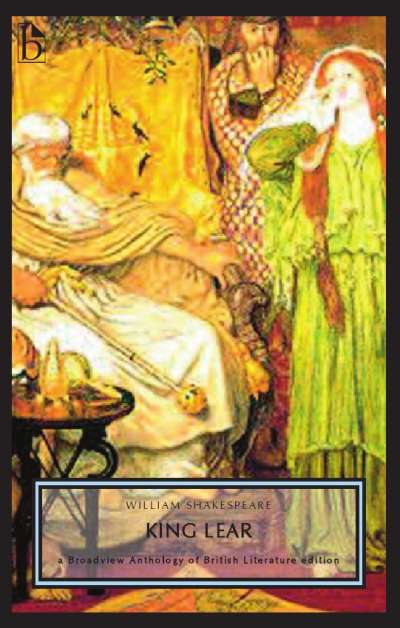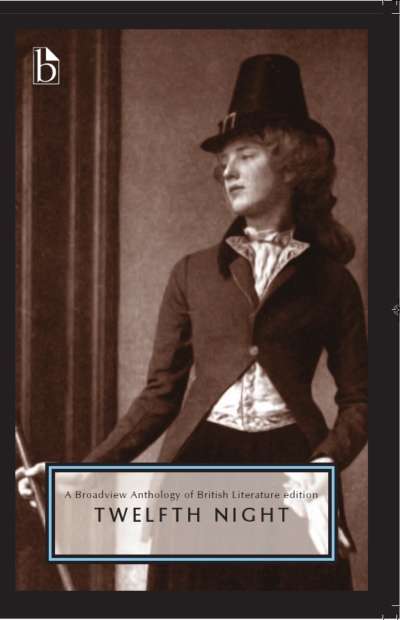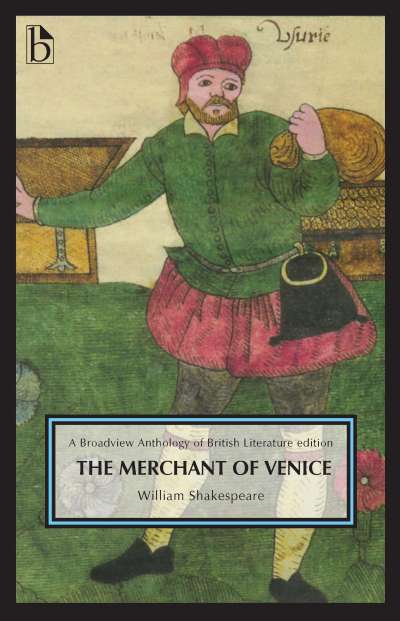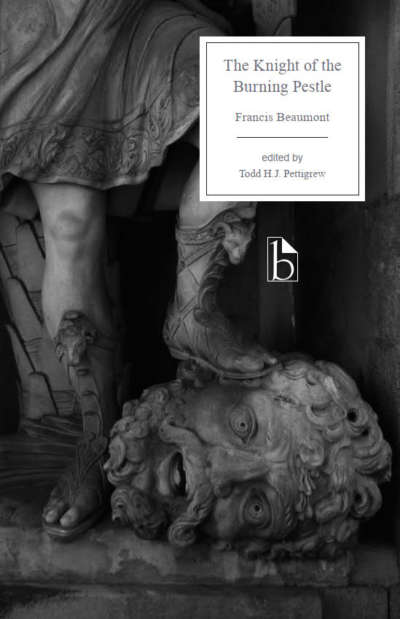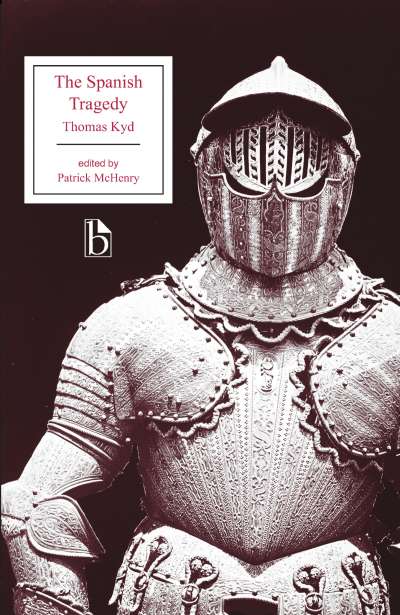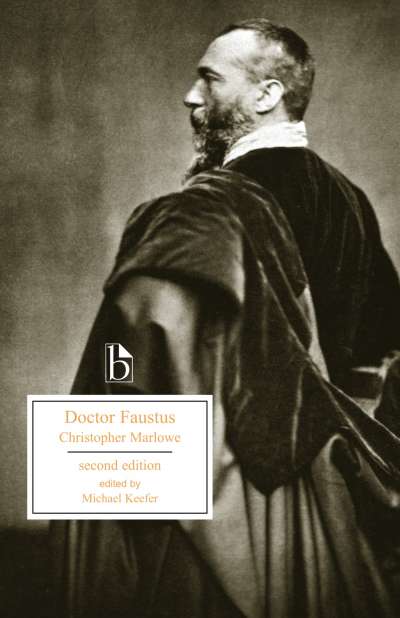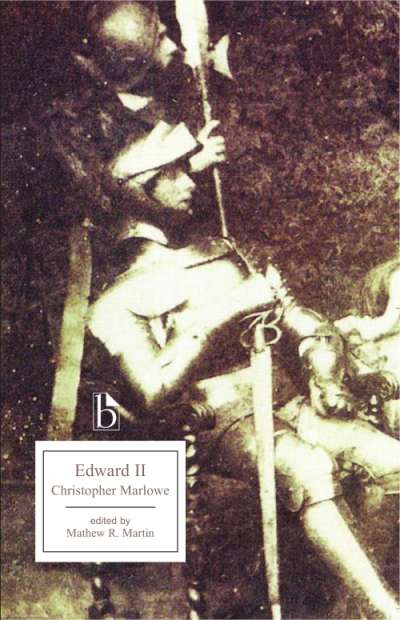Doctor Faustus is one of early modern English drama’s most fascinating characters, and Doctor Faustus one of its most problematic plays. Selling his soul to Lucifer in return for twenty-four years of power, wealth, knowledge, and sex, Doctor Faustus is at once an aspiring Renaissance magus and the hardened reprobate of Protestant theology. The introduction, annotations, and appendices of this edition, which is based on the 1616 B text, situate the play in the dynamic cultural changes of the early modern period.
The first appendix allows the reader to compare the 1616 B text to its earlier printed version, the A text, and also reproduces a variant scene from the 1663 edition of the play’s revision for the Restoration stage. Substantial excerpts from The History of the Damnable Life and Deserved Death of Doctor John Faustus, the play’s major source, offer insight into the process of adaptation by which prose fiction becomes spectacular theatre. Other appendices reproduce contemporary material on Renaissance magic, witchcraft, theology, Marlowe’s biography, and the development of his literary reputation.
Comments
“Mathew R. Martin already has an admirable track record as an editor of Marlowe’s plays; this edition of Doctor Faustus: The B Text will only enhance that reputation. The lucid Introduction is based on ample research, but Martin wears his scholarship so well that reading his prose is a pleasure. The decision to bring out an edition of the B Text is both timely and courageous. For twenty-four years, to use a Faustian interval, editors have tended to prefer the A Text (1604) to its cousin B (1616). Now the B Text has at last received the painstaking attention regularly given to A. That will not resolve the riddle of the relationship between the two, but at least it will put into the hands of Marlowe’s readers the particulars they need for balanced appraisal and comparison.” — Ronald Huebert, Dalhousie University
“Sensitively introduced, lucidly edited, and drawing upon a wide range of modern criticism, Mathew Martin’s edition of the B text of Marlowe’s Doctor Faustus is one that will amply repay the attention of scholars and students alike. In particular, the richly furnished contextual material offered here enables readers to engage more fully with some of the complex philosophical, theological, magical, and cultural tensions that Marlowe’s great drama explores so hauntingly.” — Adrian Streete, Queen’s University, Belfast
Acknowledgements
Introduction
Christopher Marlowe: A Brief Chronology of His Life and Times
A Note on the Text
The Tragical History of the Life and Death of Doctor Faustus
Appendix A: Variant Passages from the 1604 and 1663 Quartos
- From the 1604 Quarto
- Scene 4
- Chorus 3
- Scene 7
- Scene 8
- Scene 9
- Act 3 Scene 1 from the 1663 Quarto (B7)
Appendix B: Excerpts from The History of the Damnable Life and Deserved Death of Doctor John Faustus(1592), translated by P.F.
- Of his parentage and birth
- How Doctor Faustus began to practice his devilish art and how he conjured the devil, making him to appear and meet him on the morrow at his own house
- The conference of Doctor Faustus with the spirit Mephostophiles the morning following at his own house
- The second time of the spirit’s appearing to Faustus in his house and of their parley
- The third parley between Doctor Faustus and Mephostophiles about a conclusion
- How Doctor Faustus set his blood in a saucer on warm ashes and writ as followeth
- Questions put forth by Doctor Faustus unto his spirit Mephostophiles
- How Doctor Faustus dreamed that he had seen hell in his sleep and how he questioned with his spirit of matters as concerning hell, with the spirit’s answer
- Another question put forth by Doctor Faustus to his spirit concerning his lord Lucifer, with the sorrow that Faustus fell afterwards into
- Another disputation betwixt Doctor Faustus and his spirit, of the power of the devil and of his envy to mankind
- How Doctor Faustus desired again of his spirit to know the secrets and pains of hell and whether those damned devils
and their company might ever come into the favour of God again or not
- Another question put forth by Doctor Faustus to his spirit Mephostophiles of his own estate
- How Doctor Faustus fell into despair with himself, for, having put forth a question unto his spirit, they fell at variance, whereupon the whole rout of devils appeared unto him, threatening him sharply
- How Doctor Faustus desired to see hell and of the manner how he was used therein
- How Doctor Faustus was carried though the air up to the heavens to see the world and how the sky and planets ruled, after the which he wrote one letter to his friend of the same to Leipzig, how he went about the world in eight days
- How Doctor Faustus made his journey through the principal and most famous lands in the world
- How the Emperor Carolus Quintus requested of Faustus to see some of his cunning, whereunto he agreed
- How Doctor Faustus in the sight of the Emperor conjured a pair of hart’s horns upon a knight’s head that slept out of a casement
- How the above-mentioned knight went about to be revenged of Doctor Faustus
- How Doctor Faustus deceived a horse-courser
- How Doctor Faustus ate a load of hay
- How Faustus served the drunken clowns
- How Doctor Faustus played a merry jest with the Duke of Anholt in his court
- How Doctor Faustus through his charms made a great castle in presence of the Duke of Anholt
- How Doctor Faustus showed the fair Helena unto the students upon the Sunday following
- How four jugglers cut one another’s head off and set them on again and how Doctor Faustus deceived them
- How an old man and neighbour of Faustus sought to persuade him to amend his evil life and to fall unto repentance
- How Doctor Faustus wrote the second time with his own blood and gave it to the devil
- How Doctor Faustus made the spirit of fair Helena of Greece his own paramour and bedfellow in his twentythird year
- An oration of Faustus to the students
Appendix C: Predestination
- From Jean Calvin, The Institution of Christian Religion (1578), translated by Thomas North
- Book 3 Chapter 21, “Of the eternal election whereby God hath predestinate some to salvation and other some to destruction”
- Book 3 Chapter 23, “A confutation of the slanders wherewith this doctrine hath always been wrongfully burdened”
- Book 3 Chapter 24, “That election is established by the calling of God but that the reprobate do bring upon themselves the just destruction whereunto they are appointed”
- From the Geneva Bible, “Certain questions and answers touching the doctrine of predestination, the use of God’s word, and sacraments” (1599)
- From Articles whereupon it was agreed by the archbishops and bishops of both provinces and the whole clergy in the convocation holden at London in the year of our Lord God 1562 according to the computation of the Church of England, for the avoiding of the diversities of opinions and for the establishing of consent touching true religion (1593)
- Article 9, “Of original birth or sin”
- Article 10, “Of free will”
- Article 11, “Of the justification of man”
- Article 12, “Of good works”
- Article 13, “Of works before justification”
- Article 14, “Of the works of supererogation”
- Article 15, “Of Christ alone without sin”
- Article 16, “Of sin after baptism”
- Article 17, “Of predestination and election”
- Article 18, “Of obtaining eternal salvation only by the name of Christ”
- From William Perkins, A Golden Chain or The Description of Theology Containing the Order of the Causes of Salvation and Damnation According to God’s Word (1592)
- “To the Christian Reader”
- Chapter 53, “Concerning the execution of the decree of reprobation”
Appendix D: The Renaissance Magus
- From Reginald Scot, The Discovery of Witchcraft (1584)
- From Book 1 Chapter 3, “Who they be that are called witches, with a manifest declaration of the cause that moveth men so commonly to think, and witches themselves to believe, that they can hurt children, cattle, etc. with words and imaginations; and of cozening witches”
- From Book 3 Chapter 1, “The witch’s bargain with the devil, according to M. Mal. Bodin, Nider, Danaeus, Pseellus, Erastus, Hemingius, Cumanus, Aquinas, Bartholomaeus Spineus, &c.”
- From Book 13 Chapter 3, “What secrets do lie hidden, and what is taught in natural magic, how God’s glory is magnified therein, and that it is nothing but the work of nature”
- From Henry Cornelius Agrippa, Three Books of Occult Philosophy (1651), translated by J.F.
- From Book I Chapter I, “How magicians collect virtues from the three-fold world is declared in these three books”
- From Book I Chapter LXX, “Of the virtue of proper names”
- From Book III Chapter XX, “Of the annoyance of evil spirits and the preservation we have by good spirits”
- From “The censure or retraction of Henry Cornelius Agrippa concerning magic, after his declamation of the
vanity of sciences and the excellency of the Word of God”
- From James VI and I, Daemonology (1603)
- Book 1 Chapter 2, “What kind of sin the practisers of these unlawful arts commits. The division of these arts. And what are the means that allures any to practise them”
- From Book 1 Chapter 3, “The signification and etymologies of the words of magic and necromancy. The difference betwixt necromancy and witchcraft. What are the entrances and beginnings that brings any to the knowledge thereof”
- From Book 1 Chapter 6, “The devil’s contract with the magicians. The division thereof into two parts. What is the difference betwixt God’s miracles and the devil’s”
Appendix E: Marlowe’s Reputation
- From Robert Greene, Perimedes the Blacksmith (1588) and A Groatsworth of Wit (1592)
- From Perimedes the Blacksmith (1588)
- From A Groatsworth of Wit (1592)
- Thomas Kyd’s letters to Sir John Puckering about Marlowe
- Richard Baines, “A note containing the opinion of Christopher Marlowe concerning his damnable Judgment of religion
and scorn of God’s word”
- From Thomas Beard, The Theatre of God’s Judgements (1597)
Works Cited and Further Reading
Mathew R. Martin is Professor of English at Brock University and the editor of the Broadview Editions of Christopher Marlowe’s Edward II and The Jew of Malta.

